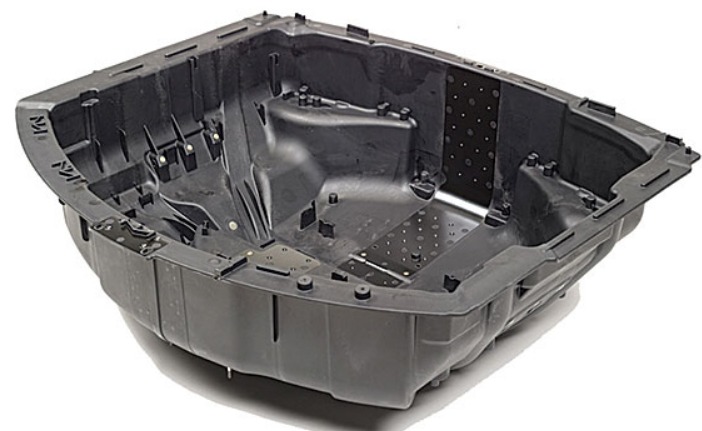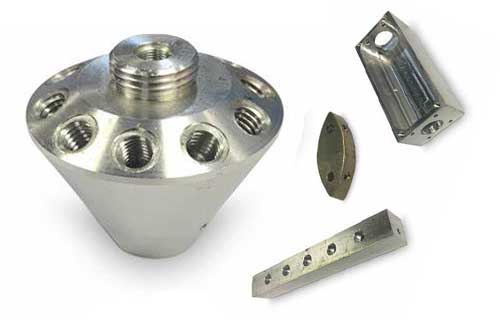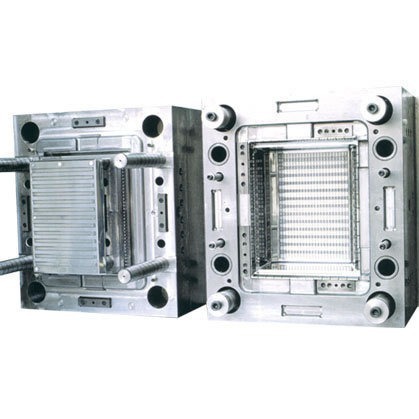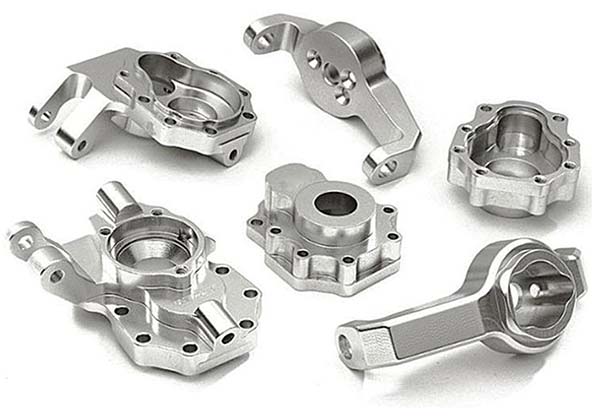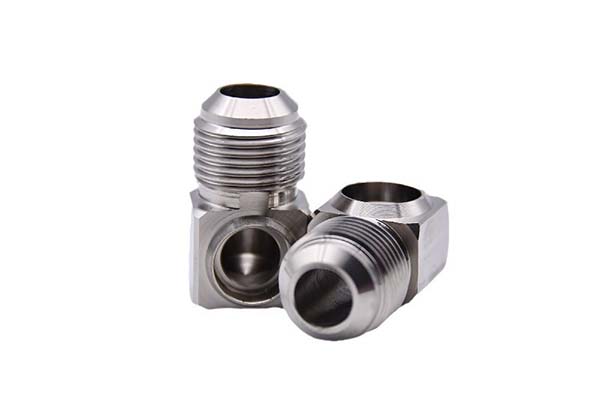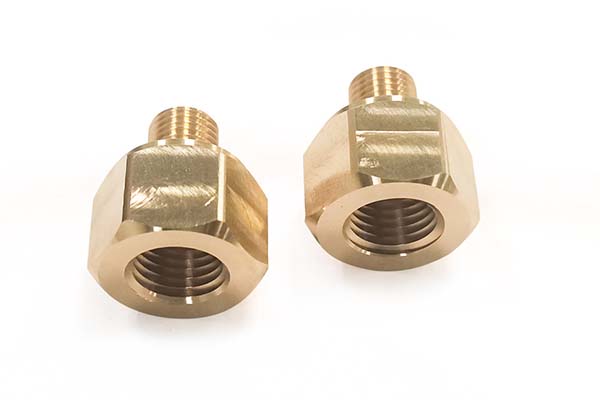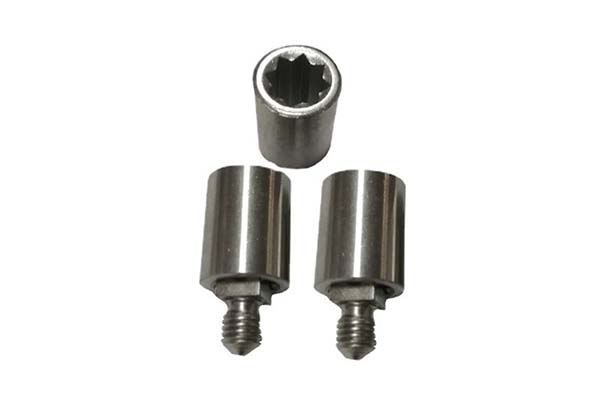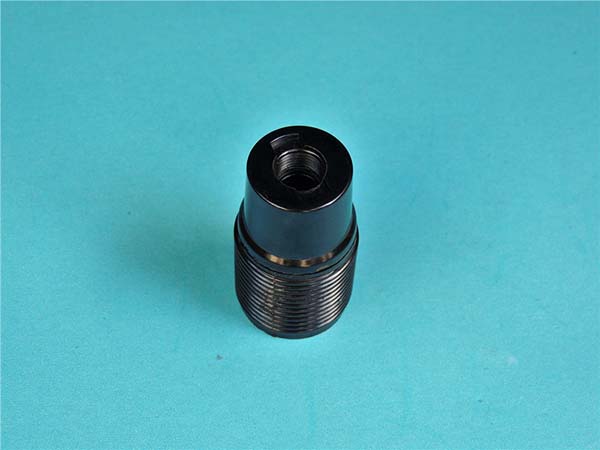Introduction
The Significance of Precision CNC Machining Suppliers
In the realm of modern manufacturing, precision CNC machining suppliers play a pivotal role. They are the backbone that enables the creation of high - quality, complex components across a wide array of industries. From aerospace and automotive to medical and electronics, the demand for precision - engineered parts is ever - growing, and these suppliers are at the forefront of meeting this demand.
Take the aerospace industry as an example. Aircraft engines require turbine blades with extremely tight tolerances. Precision CNC machining suppliers are capable of manufacturing these blades with micron - level accuracy. A study by the International Air Transport Association (IATA) shows that the efficiency of aircraft engines has increased by about 30% in the past few decades, in large part due to the high - precision components produced by CNC machining. These high - precision parts not only improve the performance of the engines but also enhance fuel efficiency and reduce emissions.
In the automotive industry, precision CNC - machined parts contribute to better vehicle performance, safety, and fuel economy. Components such as engine blocks, transmission gears, and brake parts need to be manufactured with utmost precision. According to the Society of Automotive Engineers (SAE), vehicles with precisely machined parts have shown a 15 - 20% reduction in energy consumption during operation.
As manufacturing continues to evolve, understanding the future trends and innovations of precision CNC machining suppliers becomes crucial. This article delves into these aspects, aiming to provide valuable insights for manufacturers, engineers, and anyone interested in the world of precision manufacturing.
Emerging Trends in Precision CNC Machining
Advanced Automation
Advanced automation is revolutionizing precision CNC machining. Automated production lines are becoming increasingly common in the facilities of precision CNC machining suppliers. For example, in a large - scale automotive parts manufacturing plant, an automated CNC machining line can run 24/7 with minimal human intervention. Robots are integrated into the production process, handling tasks such as loading and unloading workpieces, tool changing, and quality inspection.
A case in point is the use of robotic arms in a CNC machining center for aerospace component production. These robotic arms can precisely pick up raw materials, place them onto the machining platform, and remove the finished parts with an accuracy of ±0.01mm. According to a report by the International Federation of Robotics (IFR), the use of robots in CNC machining has led to a 40 - 60% increase in production efficiency in many manufacturing plants. This not only reduces labor costs but also significantly improves the consistency and quality of the products by minimizing human - induced errors.
Integration of AI and Machine Learning
The integration of AI and machine learning is another significant trend. AI - powered systems can analyze vast amounts of data generated during the machining process, such as spindle load, temperature, and vibration. By doing so, they can predict potential tool failures or machine malfunctions in advance. For instance, predictive maintenance algorithms can monitor the wear and tear of cutting tools. A study by McKinsey shows that predictive maintenance enabled by AI in CNC machining can reduce unplanned downtime by up to 50% and extend the lifespan of equipment by 20 - 30%.
In terms of programming, machine - learning algorithms can generate optimized tool paths. Instead of relying solely on traditional CAM (Computer - Aided Manufacturing) software, AI - based systems can consider multiple factors simultaneously, such as material properties, cutting forces, and surface finish requirements. This results in more efficient machining processes, reducing both machining time and material waste.
Sustainable Machining Practices
With growing environmental awareness, sustainable machining practices are on the rise. Precision CNC machining suppliers are increasingly using eco - friendly materials. For example, in the electronics industry, some suppliers are choosing recycled aluminum for CNC - machined components. A study by the World Business Council for Sustainable Development (WBCSD) indicates that using recycled materials can reduce the carbon footprint associated with material extraction and production by up to 90% in some cases.
Energy - efficient equipment is also being adopted. Modern CNC machines are designed with features like variable - speed drives, which adjust the power consumption according to the machining requirements. This can lead to a 30 - 40% reduction in energy consumption compared to older models. Additionally, suppliers are optimizing machining processes to minimize the use of cutting fluids and other consumables. Some are using dry - machining techniques or water - based, biodegradable cutting fluids, which are less harmful to the environment.
How Precision CNC Machining Suppliers Can Thrive in the Future
Strategic Investments in Technology
To thrive in the future, precision CNC machining suppliers must make strategic investments in technology. This means staying at the forefront of the trends mentioned earlier. For example, investing in advanced automation systems can lead to long - term cost savings and increased competitiveness. A supplier that invests in a fully automated CNC machining cell can produce a larger volume of parts in less time, meeting the growing demands of clients.
Moreover, embracing AI and machine - learning technologies is essential. By integrating AI - based quality control systems, suppliers can ensure that every part leaving their facility meets the highest standards. These systems can detect even the slightest deviations from the required specifications, reducing the number of defective products. According to a survey by Deloitte, companies that have integrated AI in their quality control processes have seen a 30 - 40% reduction in defect rates. Additionally, suppliers should invest in sustainable machining technologies. This not only helps in meeting environmental regulations but also appeals to environmentally conscious customers. For instance, purchasing energy - efficient CNC machines may have a higher upfront cost but can lead to significant savings on energy bills over time.
Focus on Employee Training and Development
The future success of precision CNC machining suppliers also depends on their workforce. With the increasing complexity of CNC machining technologies, there is a growing need for skilled employees. Suppliers should focus on training their existing employees to keep up with the latest trends. For example, providing training on programming AI - integrated CNC machines can enhance the capabilities of the workforce. A study by the National Institute of Standards and Technology (NIST) shows that companies that invest in employee training see a 20 - 25% increase in productivity.
Furthermore, attracting new talent is crucial. Precision CNC machining suppliers can partner with technical schools and universities to recruit fresh graduates. These young professionals bring in new ideas and are often more familiar with the latest technologies. By offering internships and apprenticeships, suppliers can groom future talent and build a pipeline of skilled workers. In addition, creating a positive work environment and offering competitive salaries and benefits can help in retaining employees. A stable workforce is more likely to contribute to the long - term success of the supplier, as they accumulate knowledge and experience over time.
Yigu Technology's Perspective
As a non - standard plastic and metal products custom supplier, Yigu Technology foresees both opportunities and challenges in the future trends of precision CNC machining suppliers.
Opportunities in Collaboration: The increasing demand for customized parts in various industries presents a great opportunity for collaboration. For example, in the development of new medical devices, Yigu Technology can work closely with precision CNC machining suppliers. The latter can use their advanced CNC machining capabilities to produce high - precision components, while Yigu Technology contributes its expertise in non - standard plastic and metal product design. This synergy can lead to the creation of innovative medical devices that meet the strictest quality and safety standards.
Challenges in the Market: However, there are also challenges. The rapid technological advancements mean that keeping up with the latest trends requires continuous investment in research and development. For instance, adopting new sustainable machining practices may involve high - upfront costs for purchasing new equipment or researching eco - friendly materials. Additionally, the highly competitive market requires Yigu Technology and precision CNC machining suppliers to constantly improve product quality and reduce costs to stay ahead.
FAQ
What is the most significant trend in precision CNC machining currently?
The most significant trend is the development of advanced automation. Automated production lines with integrated robots for tasks like workpiece handling, tool changing, and quality inspection are becoming common. This trend has led to a 40 - 60% increase in production efficiency in many manufacturing plants, as reported by the International Federation of Robotics (IFR). It reduces labor costs and improves product consistency by minimizing human - induced errors.
How can small - scale precision CNC machining suppliers compete with larger ones?
Small - scale suppliers can focus on niche markets. By specializing in a particular type of component or serving a specific industry, they can develop in - depth expertise. For example, focusing on producing high - precision components for the jewelry industry. Additionally, offering highly customized services can set them apart. They can work closely with clients to meet unique requirements, something larger suppliers may not be as flexible in doing. This allows small - scale suppliers to build strong relationships with customers based on personalized service and high - quality, custom - made products.
Are there any limitations to the use of AI in precision CNC machining?
Yes, there are limitations. One major concern is data security. AI - powered systems rely on large amounts of data, and if this data is compromised, it can lead to serious consequences, such as intellectual property theft or production disruptions. Another limitation is that AI may struggle with extremely complex and unforeseen situations. While it can handle most common machining scenarios well, in cases where there are sudden, unexpected changes in the machining environment or part design, its response may not be as effective as a human operator who can use intuition and experience to adapt.
